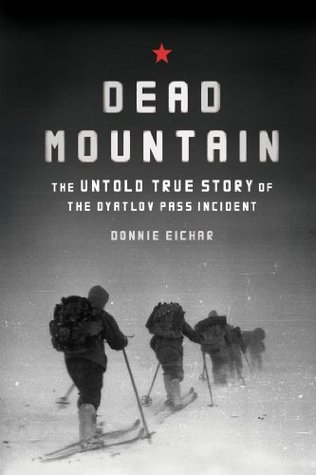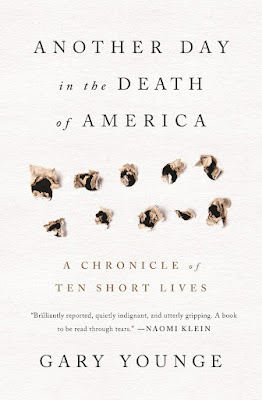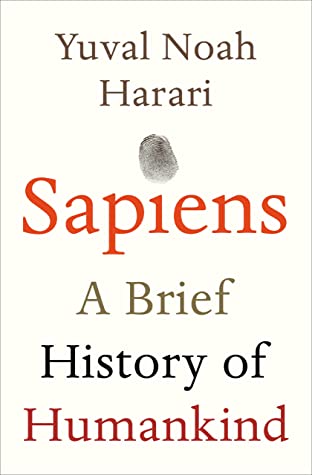 |
| This post contains affiliate links. I earn a commission from qualifying purchases. |
In the last few weeks, we've talked about the best memoirs and the best biographies. Now we're talking about the best general nonfiction. These books are about topics, events, or groups of people. I tried to pick a variety of subjects for you!
🐸 Best Nonfiction Books To Read 💻
DEAD MOUNTAIN: THE UNTOLD TRUE STORY OF THE DYATLOV PASS INCIDENT BY DONNIE EICHAR
Historical Mystery
In February 1959, a group of nine experienced hikers in the Russian Ural Mountains died mysteriously on an elevation known as Dead Mountain. Eerie aspects of the incident—unexplained violent injuries, signs that they cut open and fled the tent without proper clothing or shoes, a strange final photograph taken by one of the hikers, and elevated levels of radiation found on some of their clothes—have led to decades of speculation over what really happened. This gripping work of literary nonfiction delves into the mystery through unprecedented access to the hikers' own journals and photographs, rarely seen government records, dozens of interviews, and the author's retracing of the hikers' fateful journey in the Russian winter.
Why I recommend it: A few years ago, I became obsessed with the Dyatlov Pass incident and read everything I could find on the internet about it. It's a freakin' terrifying mystery!
This book is the author's attempt to solve the mystery. He mixes the hikers' photos and journal entries with police reports and interviews. It's a short book, and it feels very personal. You really start to care about the young hikers. Even though I already knew all the theories about what happened to them, I couldn't put the book down. If you like unsolved mysteries or wilderness disaster stories, you need to read this one. I don't want to say anymore because I don't want to spoil the mystery for you.
ANOTHER DAY IN THE DEATH OF AMERICA: A CHRONICLE OF TEN SHORT LIVES BY GARY YOUNGE
Sociology
On an average day in America, seven children and teens will be shot dead.
In Another Day in the Death of America, award-winning journalist Gary Younge tells the stories of the lives lost during one such day. It could have been any day, but he chose November 23, 2013. Black, white, and Latino, aged nine to nineteen, they fell at sleepovers, on street corners, in stairwells, and on their own doorsteps. From the rural Midwest to the barrios of Texas, the narrative crisscrosses the country over a period of twenty-four hours to reveal the full human stories behind the gun-violence statistics and the brief mentions in local papers of lives lost.
This powerful and moving work puts a human face—a child's face—on the "collateral damage" of gun deaths across the country. This is not a book about gun control, but about what happens in a country where it does not exist. What emerges in these pages is a searing and urgent portrait of youth, family, and firearms in America today.
Why I recommend it: It's a thought-provoking look at the stories behind the statistics. It's not a book about gun control or the second amendment. It's just a story about what happens when children have easy access to guns and not enough education about them.
This book will stay with me forever because it shows how quickly and pointlessly life can end. Two kids got ahold of their parents' gun and decided to play with it. A lonely teen befriended a gang member. Sometimes a decision that seems spontaneous and inconsequential can end up altering an entire community.
STIFF: THE CURIOUS LIVES OF HUMAN CADAVERS BY MARY ROACH
Science
Mary Roach takes the age-old question, "What happens to us after we die?" quite literally. And in Stiff, she explores the "lives" of human cadavers from the time of the ancient Egyptians all the way up to current campaigns for human composting. Along the way, she recounts with morbidly infectious glee how dead bodies are used for research ranging from car safety and plastic surgery (you'll cancel your next collagen injection after reading this!), to the authenticity of the Shroud of Turin.
Impossible (and irreverent) as it may sound, Roach has written a book about corpses that's both lively and fresh. She traveled around the globe to conduct her forensic investigations, and her findings are wryly intelligent. While the myriad uses for cadavers recounted are often graphic, Roach imbues her subject with a sense of dignity, choosing to emphasize the oddly noble purposes corpses serve, from organ donation to lifesaving medical research.
Readers will come away convinced of the enormous debt that we, the living, owe to the study of the remains of the dead. And while it may not offer the answer to the ancient mystery we were hoping for, Stiff offers a strange sort of comfort in the knowledge that, in a sense, death isn't necessarily the end.
Why I recommend it: It's a modern classic for a reason. I love Mary Roach's nonfiction because she asks the morbid questions that normal people are afraid to ask. This book is about what happens to bodies that are donated to science. It's fast-paced, funny, interesting, and never disrespectful to the corpses. I couldn't put it down.
BREAKING THE SOCIAL MEDIA PRISM: HOW TO MAKE OUR PLATFORMS LESS POLARIZING BY CHRISTOPHER A. BAIL
Technology
In an era of increasing social isolation, platforms like Facebook and Twitter are among the most important tools we have to understand each other. We use social media as a mirror to decipher our place in society but, as Chris Bail explains, it functions more like a prism that distorts our identities, empowers status-seeking extremists, and renders moderates all but invisible. Breaking the Social Media Prism challenges common myths about echo chambers, foreign misinformation campaigns, and radicalizing algorithms, revealing that the solution to political tribalism lies deep inside ourselves.
Drawing on innovative online experiments and in-depth interviews with social media users from across the political spectrum, this book explains why stepping outside of our echo chambers can make us more polarized, not less. Bail takes you inside the minds of online extremists through vivid narratives that trace their lives on the platforms and off, detailing how they dominate public discourse at the expense of the moderate majority. Wherever you stand on the spectrum of user behavior and political opinion, he offers fresh solutions to counter political tribalism from the bottom up and the top down. He introduces new apps and bots to help readers avoid misperceptions and engage in better conversations with the other side. Finally, he explores what the virtual public square might look like if we could hit reset and redesign social media from scratch through a first-of-its-kind experiment on a new social media platform built for scientific research.
Providing data-driven recommendations for strengthening our social media connections, Breaking the Social Media Prism shows how to combat online polarization without deleting our accounts.
Why I recommend it: It's hard to review this book because it was a weirdly personal reading experience for me. I can't explain my thoughts without telling my whole life story, which exactly 0 people want to hear because it's boring. Basically, I found this book comforting. It confirmed some of my suspicions and helped me realize that I'm not going insane. (It's always a good day when you realize you're not going insane.)
A team of researchers discovered that Americans aren't actually as politically polarized as we believe. Our political conversations have just been hijacked by extremists who attack moderates and discourage them from participating in political discussions. Americans think we're polarized because moderates aren't talking. The author isn't optimistic that our current social media platforms can fix the problem, but he has ideas for new platforms that will encourage moderates without rewarding trolls. I hope he gets funding to test his ideas. If you're interested in how social media shapes our perceptions, you need to read this book. It's thoughtful and well-researched.
SAPIENS: A BRIEF HISTORY OF HUMANKIND BY YUVAL NOAH HARARI
History
100,000 years ago, at least six human species inhabited the earth. Today there is just one. Us. Homo sapiens.
How did our species succeed in the battle for dominance? Why did our foraging ancestors come together to create cities and kingdoms? How did we come to believe in gods, nations and human rights; to trust money, books and laws; and to be enslaved by bureaucracy, timetables and consumerism? And what will our world be like in the millennia to come?
In Sapiens, Dr Yuval Noah Harari spans the whole of human history, from the very first humans to walk the earth to the radical–and sometimes devastating–breakthroughs of the Cognitive, Agricultural and Scientific Revolutions. Drawing on insights from biology, anthropology, paleontology and economics, he explores how the currents of history have shaped our human societies, the animals and plants around us, and even our personalities. Have we become happier as history has unfolded? Can we ever free our behavior from the heritage of our ancestors? And what, if anything, can we do to influence the course of the centuries to come?
Bold, wide-ranging and provocative, Sapiens challenges everything we thought we knew about being human: our thoughts, our actions, our power, and our future.
Why I recommend it: If you took everything that interests me about humans and crammed it into one book, you’d come up with this one. It delivers exactly what it promises in the title. It’s provocative and thought-provoking.
I didn’t always agree with the author’s conclusions (especially about the agricultural revolution), but he argues his points well enough that I can see where he’s coming from. I’m surprised at how quickly I flew through this book. It’s massive and more academic than what I usually read, but I couldn’t put it down because the writing style is engaging, and the author asks interesting questions. I love that the book focuses on humanity as a whole and not on individual humans. I need to find more history books like this one. Recommendations, please.
SURVIVING THE EXTREMES: WHAT HAPPENS TO THE BODY AND MIND AT THE LIMITS OF HUMAN ENDURANCE BY KENNETH KAMLER, M.D.
Medicine
ENDURANCE: SHACKLETON’S INCREDIBLE VOYAGE BY ALFRED LANSING
History
In August 1914, polar explorer Ernest Shackleton boarded the Endurance and became locked in an island of ice. Thus began the legendary ordeal of Shackleton and his crew of twenty-seven men. When their ship was finally crushed between two ice floes, they attempted a near-impossible journey over 850 miles of the South Atlantic's heaviest seas to the closest outpost of civilization.
In Endurance, the definitive account of Ernest Shackleton's fateful trip, Alfred Lansing brilliantly narrates the harrowing and miraculous voyage that has defined heroism for the modern age.
Why I recommend it: If you enjoy real-life snow survival stories, you need to read this one. It’s a classic, and it’s stunning. Shackleton and his crew were complete badasses. Everything went wrong on their mission, and they mostly just shrugged and rolled with it. I would have panicked and died.
This book was first published in 1959. The author conducted extensive interviews with the surviving members of Shackleton's crew. He also had access to the journals kept by the explorers. It’s interesting to read a detailed firsthand account of events that happened so long ago. Even though I knew Shackleton’s story before I started the book, I was on the edge of my seat. There’s so much tension!
NEVER SPLIT THE DIFFERENCE: NEGOTIATING AS IF YOUR LIFE DEPENDED ON IT BY CHRIS VOSS
Psychology
After a stint policing the rough streets of Kansas City, Missouri, Chris Voss joined the FBI, where his career as a hostage negotiator brought him face-to-face with a range of criminals, including bank robbers and terrorists. Reaching the pinnacle of his profession, he became the FBI’s lead international kidnapping negotiator. Never Split the Difference takes you inside the world of high-stakes negotiations and into Voss’s head, revealing the skills that helped him and his colleagues to succeed where it mattered most: saving lives. In this practical guide, he shares the nine effective principles—counter-intuitive tactics and strategies—you too can use to become more persuasive in both your professional and personal life.
Why I recommend it:
Evicted: Poverty And Profit In The American City By Matthew Desmond
Economics
Cannibalism: A Perfectly Natural History by Bill Schutt
Nature
For centuries scientists have written off cannibalism as a bizarre phenomenon with little biological significance. Its presence in nature was dismissed as a desperate response to starvation or other life-threatening circumstances, and few spent time studying it. A taboo subject in our culture, the behavior was portrayed mostly through horror movies or tabloids sensationalizing the crimes of real-life flesh-eaters. But the true nature of cannibalism—the role it plays in evolution as well as human history—is even more intriguing (and more normal) than the misconceptions we've come to accept as fact.
In Cannibalism: A Perfectly Natural History, zoologist Bill Schutt sets the record straight, debunking common myths and investigating our new understanding of cannibalism's role in biology, anthropology, and history in the most fascinating account yet written on this complex topic. Schutt takes readers from Arizona's Chiricahua Mountains, where he wades through ponds full of tadpoles devouring their siblings, to the Sierra Nevadas, where he joins researchers who are shedding new light on what happened to the Donner Party—the most infamous episode of cannibalism in American history. He even meets with an expert on the preparation and consumption of human placenta (and, yes, it goes well with Chianti).
Bringing together the latest cutting-edge science, Schutt answers questions such as why some amphibians consume their mother's skin; why certain insects bite the heads off their partners after sex; why, up until the end of the twentieth century, Europeans regularly ate human body parts as medical curatives; and how cannibalism might be linked to the extinction of the Neanderthals. He takes us into the future as well, investigating whether, as climate change causes famine, disease, and overcrowding, we may see more outbreaks of cannibalism in many more species—including our own.
Why I recommend it: This book gave me nightmares about dying from mad cow disease. Nightmares probably don’t sound like a good thing, but if I’m thinking about a book in my sleep, it must be doing something right. Mad cow disease is especially terrifying because the British government tried to suppress info about it to protect the beef industry. Yeah . . . we’re all screwed.
The writing style is funnier than I expected. My favorite chapters are the ones about Christopher Columbus. I knew about the damage he did to the places he “explored,” but I didn’t know his connection to cannibalism. Queen Isabella decided that only New World cannibals could be enslaved. Selling slaves was big business, so Columbus and his followers slapped the cannibal label on pretty much everybody. I love that the author examines the history of cannibalism and how our (often irrational) fears of it have shaped the modern world. It’s a unique approach to the subject.











These all sound fascinating. I read Gulp by Mary Roach and need to read Stiff.
ReplyDeleteJamie (jannghi.blogspot.com):
ReplyDeleteI enjoy some nonfiction. What I read when depends on my mood and what I can find.
I loved Dead Mountain! One of the best nonfiction books I read last year. And after reading this list, I now really want to check out both Evicted and Cannibalism. They sound very interesting.
ReplyDeleteI cannot remember the last non-fiction (non memoire) I read. Probably a science book. These seem pretty heavy, but I am glad you enjoyed them all.
ReplyDeleteTrue story: Every single nonfiction book I own I have bought on your recommendation. So now I guess I have to get a few more (Dead Mountain, Extremes, Sapiens, and Cannibalism, to name a few that have piqued my interest.) Now, I just need to actually read them 😂
ReplyDeleteEndurance and Dead Mountain were two absolutely fascinating reads!
ReplyDeleteI love STIFF. It's one of my favorite nonfiction books. I read it years ago, but I still bring it up in conversations now and then. It made such an impression on me. I have DEAD MOUNTAIN on my TBR pile. I should move it up. It sounds like I need to read BREAKING THE SOCIAL MEDIA PRISM. It would probably do me some good based on your comments about the book.
ReplyDeleteI listened to an audiobook on the Endurance, and I am curious about Dyatlov Pass Incident. Honestly, these all look good.
ReplyDelete